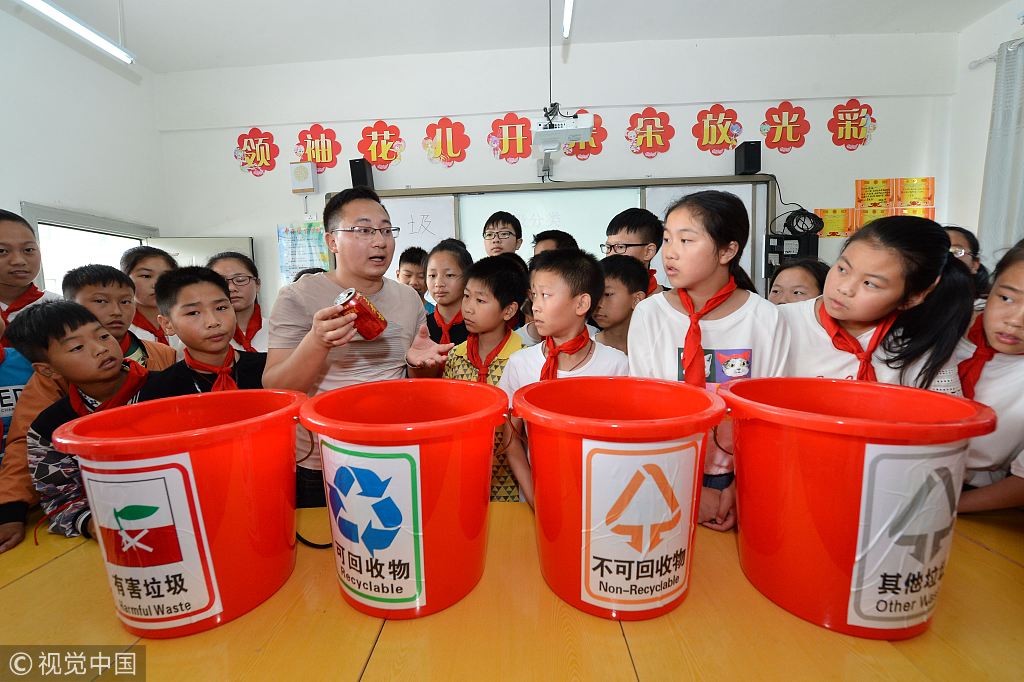More Chinese choose 'zero waste' lifestyle


BEIJING -- Saizi lives in a small village in northern Beijing with her parents and two dogs. They used to live in the maddening city center, but after Saizi's parents retired, they moved to the countryside. Saizi quit her job in the city and followed them there.
The family works in the fields to plant vegetables and fruit trees. They are self-sufficient, and one principle they hold firmly is to waste nothing.
According to Saizi, this means taking just enough for one's needs and avoiding extravagance, sorting the inevitable trash, recycling and reusing everything they can.
ZERO-WASTE FAMILY
Saizi's father always jokes about his wife being too cheap when asked why they decided to live a "no waste" life.
"My parents lived through a long period of material scarcity, and they learned to treasure everything and hate waste," Saizi explained.
For example, her mother would cut open the toothpaste tube to make sure that all of the toothpaste was used.
Another family tradition is using their creativity and skills to turn used items into something new. For example, after recycling the tubes, the toothpaste's cap becomes a tiny little flower pot to decorate the house. Or when their electric fan -- which came out of a factory in 1986 -- finally broke beyond repair, they turned it into a case. When the dog tore one of her sneakers, Saizi did some modifications and added a lace border to make an original, one-of-a-kind pair of loafers.
No food is wasted. Residue usually consists of fruit pits, nut shells, leaves and fruit that has fallen from the trees. All can be turned into fuel for fire, enzyme cleansers, fertilizers and naturally fermented wines.
They pick up dog poop with scoops made with tin cans, and use the excrement, firewood ashes and kitchen residue compost in their home garden, where nature's magic creates an endless cycle.
"There is no such thing as waste, only resources we haven't found out how to use yet," Saizi said. She is an adored lecturer at seminars nationwide, where she shares her family legacy of zero waste.
21-DAY TRANSFORMATION
Tang Beijia, or as many affectionately call her, "Old Tang," believes that living green is not a sacrifice. In fact, it is a way to pursue happiness and a less stressful way of life.
Tang started her "GoZeroWaste" lab in late 2016, when she began to cut plastic use and reduce trash in an effort to contribute to the battle against plastic pollution.
- China seeks public feedback on draft rules for anthropomorphic AI services
- China's top legislature concludes standing committee session
- China adopts revised Civil Aviation Law
- China launches satellite to aid in early extreme weather detection
- Report on mining accident that killed 6 suggests accountability for 42 individuals
- Law aimed at bolstering standard Chinese language education passed





































